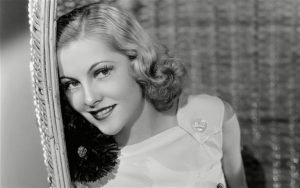Billy Wilder Quotes: Master of Humor & Inspiration in Film
Explore unforgettable quotes from legendary Hollywood directors and stars. Gain unique insights into the golden age of cinema, filmmaking, and iconic performances.

“I always loved movies but had never tried writing one until I went to Berlin. When I saw Sergei Eisenstein’s Battleship Potemkin, I knew what I wanted to do for a living. Battleship Potemkin is still at the top of my list.”
“It’s not easy for a screenwriter to become a director, and it doesn’t happen often. Writing is a very solitary profession, while directing is very social. The fact that I was a writer who liked to collaborate (he only wrote with another screenwriter) helped me make the leap.”
When he arrived in Hollywood and had to learn English (Billy Wilder was born in Poland): “It’s very difficult to be a writer and feel that it’s the only thing you want to be in life. And then suddenly be stripped of the language in which you think, speak, and write. You’re more or less dead. So, either I learned the (English) language or I could be buried.”
“Greta Garbo was quite an obedient actress. She liked to be given orders. We thought Lubitsch might ask us to rewrite the scene, but he told her: ‘The scene is perfect for you. You’ll do very well.’ And she really did. Garbo didn’t go to Lubitsch’s funeral. I believe it was because she was very shy. She was so shy that she probably wouldn’t even go to her own funeral if she could. I like her.” (Wilder co-wrote Ninotchka (1939) with Charles Brackett.)
“Gary Cooper became a friend, and many years later made Love in the Afternoon. He was a sophisticated and eloquent man. Women really liked him. Off-screen, he wasn’t that quiet guy he played on screen. He was a good conversationalist and not an ideal husband…” (Wilder co-wrote Ball of Fire (1941) with Charles Brackett.)
“I always wanted to have Cary Grant in my movies. But it never happened.”
“I had never heard the term ‘film noir’ when I made Double Indemnity. We didn’t think we were making eternal films, or whatever is eternal. I just made movies I’d like to watch. When I was lucky, that coincided with public taste. With Double Indemnity, I was lucky.”
“Before The Lost Weekend, alcoholism was treated as something funny. There were character actors who only played drunks; and always for laughs. There’s nothing funny about a drunk.”
“Douglas Fairbanks Jr. had a long romance with Dietrich. He told me she was prejudiced against women. She was an angel with men, but she didn’t trust women. She’d say: ‘They’re always looking for wrinkles on us.'”
“Originally, Sunset Boulevard was was supposed to be a comedy with Mae West. Today it’s impossible to believe that.”
“You know, it’s strange. When Swanson made Sunset, she was only 50. But for some reason, there was an abyss between silent and talking films, and some people thought she was 70 or 80 years old. I don’t think she liked that. Nobody likes to look older than they really are. I told her she was too good.”
“I used to get annoyed with her (Marilyn). She was never on time. Not once. She thought her looks entitled her to special privileges. It was true, but that didn’t work with me, because I looked at her not as a man, but as her director.”
“You know, working with her was like being a dentist, pulling those lines like teeth, except the dentist was the one feeling the pain.” (About Marilyn)
(After directing Marilyn for the second time in Some Like It Hot): “I discussed this with my doctor and psychiatrist and they told me I’m too old and rich to go through that again.”
“Making movies is a bit like entering a dark room. Some people stumble over furniture, others break their legs, but some of us see better in the dark than others. The ultimate trick is to convince, to persuade.”
“I am terribly in love with Jack Lemmon. We understood each other very well, and it’s a pleasure to work with him. He’s a thinking actor, but not argumentative. By this, I mean, if we start working at 9 o’clock, at 8:15 he’d come to my office and say: ‘Hey, I have a great idea. Look, why not? Do this! Blah, blah, blah, blah.’ And I’d just look at him, and he’d say: ‘I don’t like it either.’ And he’d leave.”
“There was an actress named Marilyn Monroe. She was always late. She never remembered her lines. She was a pain in the butt. My Aunt Millie is a good lady. If she were in movies, she would always arrive on time. She knew her lines. She would be nice. Why does everyone in Hollywood want to work with Marilyn Monroe and no one wants to work with my Aunt Millie? Because nobody goes to the movies to watch my Aunt Millie.”
“When I look back at it, I don’t get mad at Marilyn. She was someone you could get irritated with, but there was no way to stay irritated for long. She didn’t know her lines. It was terrible. Then, on the thirtieth take, she’d say it in a way no one else could.”



